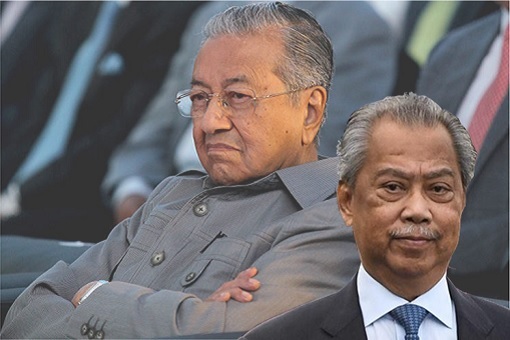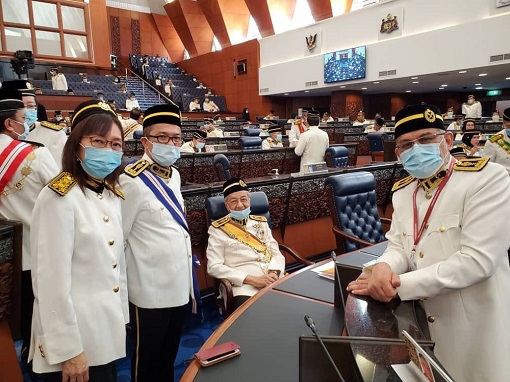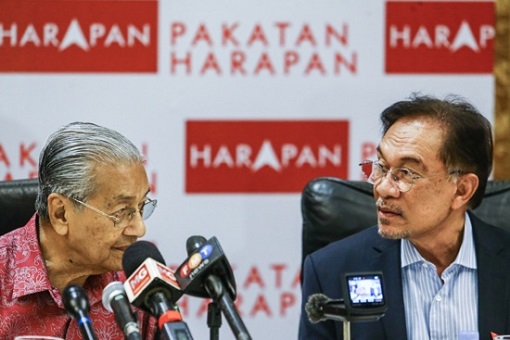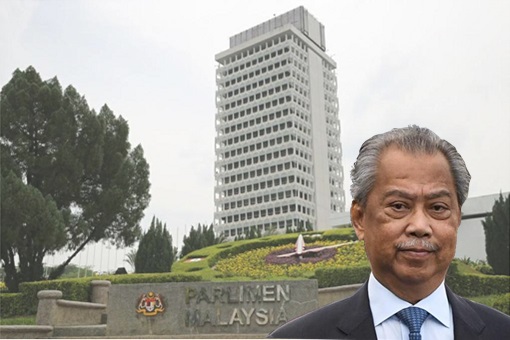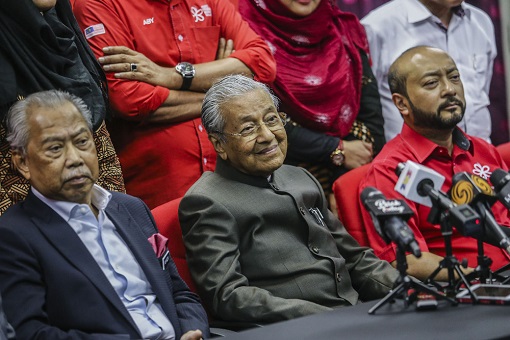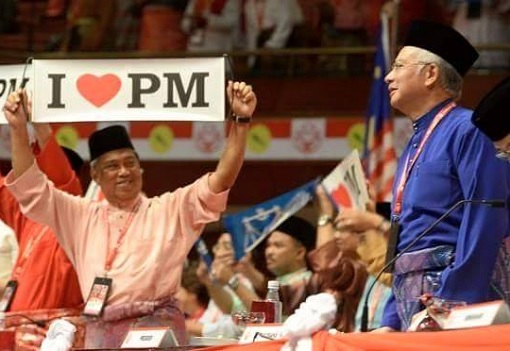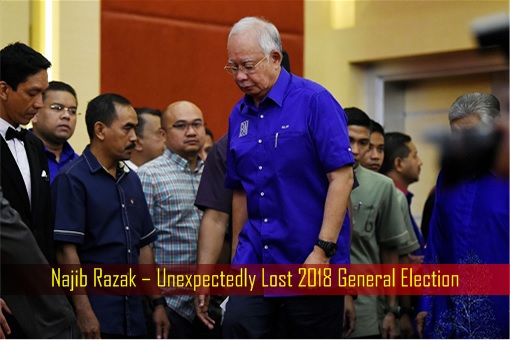
KUALA LUMPUR, May 30 — The stranglehold of former Umno president Datuk Seri Najib Razak on the party has proven to be a great missed opportunity for Umno to allow people like deputy president Datuk Seri Mohamad Hasan and former Youth chief Khairy Jamaluddin to rise and cleanse the party of corrupt leaders.
Johor DAP chief Liew Chin Tong shared this today in a lengthy opinion piece, in which he said all that was needed to be done by such individuals was to apologise to the nation for Umno’s past sins and plead for a fresh start.
“With the new blood and recasting of its messaging, Umno has a chance to win back the people’s support in a free and fair general election,” he wrote.
Instead, Liew said Mohamad and Khairy appear to have allowed Najib to call the shots, blaming the former prime minister for being a part of a ‘scorched earth’ political strategy by fanning racial hatred to make things ungovernable for Pakatan Harapan (PH).
Throughout the piece, the former deputy defence minister in the PH administration drew comparisons to the Umno of old and as it exists now, noting that the party had many strong points in the past which made it appealing to so many.
He cited Umno’s reputation as a rural party par excellence whose former leaders had a developmental goal, evident in the decent infrastructure seen in some rural areas in Johor, including pre-schools, healthcare, education and public amenities.
Yet the development of infrastructure may have backfired on the party, as Liew claimed it made many working adults leave their kampung to work in Johor Baru, Kuala Lumpur and Singapore, where they were exposed to the harsh realities of life including the weaknesses of the Barisan Nasional government.
“Umno used to represent social mobility for the Malays, but now it is seen as an elitist party. At least until the 1990s, social mobility was the key message of the party for the community.
“When rural baby boomers began to look for jobs in the early 1970s, export-led industrialisation was pursued relentlessly and many had their lives transformed positively. Some even rose to join the life of the middle class. Opportunities for higher education were also provided for many, though not all,” he said.
In comparison, following the 1997 Asian Financial Crisis and the subsequent economic stagnation in the past 20 years, Liew said this has disillusioned many as a result, especially due to wages that have plateaued.
“The increasing gap between the rich and poor Malays, especially between the Umnoputras and the rest, is fuelling very serious intra-ethnic resentment against the Umno elites and provoking repulsion against the party leaders known to be corrupt,” he said.
Similarly, Umno was also acceptable to middle-ground non-Malay voters up until 2005, when Liew said the party “burned its bridges”.
“Since Independence (of Malaya in 1957), Umno had never contested under its own logo. It was always the symbol of the Alliance, and later Barisan Nasional, until the by-elections after 2018.
“The modus operandi of the coalition was simple — as long as Umno and its coalition partners can win more than half of the votes of all ethnic groups, no one would be able to challenge the supremacy of BN,” he said.
Liew also pointed out then-prime minister Tun Dr Mahathir Mohamad’s Bangsa Malaysia concept unveiled in early 1991 as being BN’s strong point in winning the general elections of 1995, 1999 and 2004.
However, following Dr Mahathir’s retirement in 2003, the Johor DAP chief said Umno took a wrong turn by turning right politically in 2005. As a result, it is hard to imagine non-Malays voting for a highly racialised Umno in the last 15 years, and in the context of competitive Malay-majority mixed seats, having non-Malay support is very crucial.
Looking at the party in 2020, he said Umno’s position is precarious since it is no longer the ruling party under the current Perikatan Nasional government led by Tan Sri Muhyiddin Yassin.
“Since the change of government for the first time ever in 2018, the public knows that they can vote out any party, including Umno, without fear. The government machinery, including the civil service, knows that the rule of law now is being upheld slightly better than before.
“Top civil servants also know that should there be any funny business, they may be answerable if there is another change of government. From time to time, ousted former ruling parties do come back to power through election with a new set of leaders, especially when they learned their lesson and reformed their party,” Liew said.
However, Umno remains stuck with the ill-gotten gains obtained by Najib via 1MDB and other scandals, with the party structure after the 14th general election still very much controlled by Najib.
“The disgraced prime minister knew this, continuing to play dumb like a spoiled rich kid that he is, to the delight of his staunch supporters. It may be too late for Najib to escape punishment for his involvement in the 1MDB mega scandal as well as his kleptocracy, but he is still trying to find a way to survive.
“The purpose of the racial hatred campaign was to cause the collapse of Pakatan Harapan government so that a new configuration could be engineered in which a friendlier government would be more benign to Najib’s personal interests,” he said.
As such, the situation has become a sad one for Umno, as Liew said its leaders missed kickstarting a reform agenda since they are comfortable with the old ways of doing things.
“For the benefit of Najib’s personal interest, some Umno leaders, including a few of Bersatu turncoats, have squandered the chance to return to power through winning the middle ground.
“I admit that if a general election is held today, those who voted for Najib might continue to support him, as no other Umno leader is holding on to that base as firmly as he is. That is how bad the situation is in Umno, controlled from outside by someone who has the money,” he said.
Yet not everything is doom and gloom as Liew said the middle ground is now an open political vacuum waiting to be filled, a path pointing towards a more sincere understanding and tolerance among Malaysians.
source : malaymail







